Tenor Javier Camarena and soprano Pretty Yende team up for a feast of bel canto vocal fireworks—including the show-stopping tenor aria “Ah! Mes amis,” with its nine high Cs. Alessandro Corbelli and Maurizio Muraro trade off as the comic Sergeant Sulpice, with mezzo-soprano Stephanie Blythe as the outlandish Marquise of Berkenfield. Enrique Mazzola conducts.
Related Movies
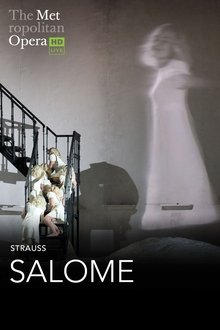
The Metropolitan Opera: Salome (2025)
Met performances of Strauss’s white-hot one-act tragedy, which receives its first new production at the company in 20 years. Claus Guth, one of Europe’s leading opera directors, gives the biblical story—already filtered through the beautiful and strange imagination of Oscar Wilde’s play—a psychologically perceptive Victorian-era setting rich in symbolism and subtle shades of darkness and light.
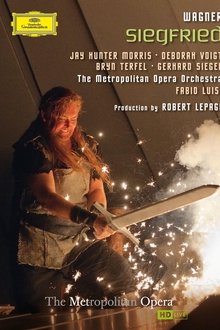
Wagner: Siegfried (2011)
Robert Lepage’s remarkable Met Opera production of Wagner’s Der Ring des Nibelungen, the 2013 Grammy Award Winner for Best Opera Recording, is now available as individual DVDs. Siegfried features Bryn Terfel, Jay Hunter Morris, and Deborah Voigt, with Fabio Luisi conducting.
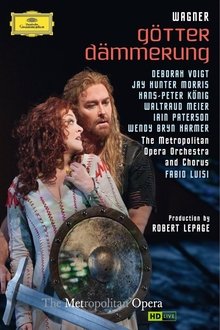
Wagner: Götterdämmerung (2012)
Ring Cycle, pt 4. Siegfried is drugged and tricked into kidnapping his wife, since she has the Ring now. More double-crossings, Siegfried ends up dead. Brunnhilde has had enough of this, tosses the Ring into the river and torches the place.
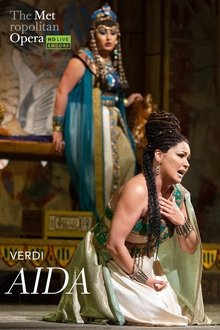
The Metropolitan Opera: Aida (2018)
With its cast of hundreds, thrilling score, and sweeping tale of love and heroics in ancient Egypt, Verdi’s Aida has long been a fixture on the stages of every major opera house in the world. For the 2018 revival of Sonja Frisell’s monumental production of this grand masterpiece, the Met assembled a truly all-star cast. Soprano Anna Netrebko takes on the title role for the first time at the Met, and mezzo-soprano Anita Rachvelishvili plays her rival, the conniving princess Amneris. Tenor Aleksandrs Antonenko is Radamès, the warrior that both women love, and Quinn Kelsey lends his robust baritone to Aida’s father, the fallen king Amonasro. Maestro Nicola Luisotti is on the podium to conduct this epic performance, filmed as part of the Met’s series of Live in HD cinema transmissions.
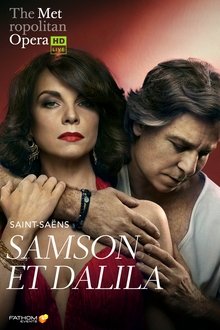
The Metropolitan Opera: Samson et Dalila (2018)
A towering biblical epic, Saint-Saëns’s operatic take on the story of Samson and Delilah has many of the hallmarks of grand opera—show-stopping vocal displays, thrilling choruses, and an engrossing plot set against a sweeping, pseudo-historical backdrop. It’s fitting, then, that Samson et Dalila has been chosen to celebrate the opening of the Met’s season four times in the company’s history, including when Darko Tresnjak’s bold new production premiered on the first night of the 2018–19 season. A few weeks later, the opera was shown as part of the Met’s series of live cinema transmissions, featuring an exceptional cast. Tenor Roberto Alagna was the heroic Samson, who ultimately falls victim to the seductive power of Dalila—the captivating mezzo-soprano Elīna Garanča. Bass-baritone Laurent Naouri sang the sinister High Priest of Dagon, with conductor Sir Mark Elder on the podium.
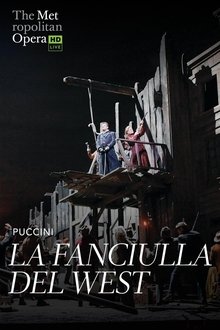
The Metropolitan Opera: La Fanciulla del West (2018)
Soprano Eva-Maria Westbroek sings Puccini’s gun-slinging heroine in this romantic epic of the Wild West, with the heralded return of tenor Jonas Kaufmann in the role of the outlaw she loves. Tenor Yusif Eyvazov also sings some performances. Baritone Željko Lučić is the vigilante sheriff Jack Rance, and Marco Armiliato conducts.
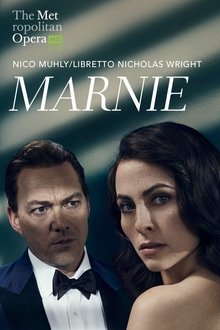
The Metropolitan Opera: Marnie (2018)
Composer Nico Muhly unveils his second new opera for the Met with this gripping reimagining of Winston Graham’s novel, set in the 1950s, about a beautiful, mysterious young woman who assumes multiple identities. Director Michael Mayer and his creative team have devised a fast-moving, cinematic world for this exhilarating story of denial and deceit, which also inspired a film by Alfred Hitchcock. Mezzo-soprano Isabel Leonard sings the enigmatic Marnie, and baritone Christopher Maltman is the man who pursues her—with disastrous results. Robert Spano conducts.
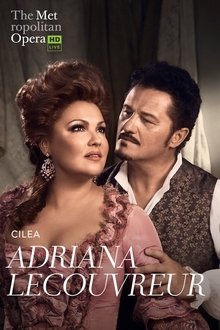
The Metropolitan Opera: Adriana Lecouvreur (2019)
Soprano Anna Netrebko joins the ranks of Renata Tebaldi, Montserrat Caballé, and Renata Scotto, taking on—for the first time at the Met—the title role of the real-life French actress who dazzled 18th-century audiences with her on-and offstage passion. The soprano is joined by tenor Piotr Beczała as Adriana's lover, Maurizio. The principal cast also features mezzo-soprano Anita Rachvelishvili and baritone Ambrogio Maestri. Gianandrea Noseda conducts. Sir David McVicar's staging, which sets the action in a working replica of a Baroque theater, premiered at the Royal Opera House in London, where the Guardian praised the "elegant production, sumptuously designed ... The spectacle guarantees a good night out."
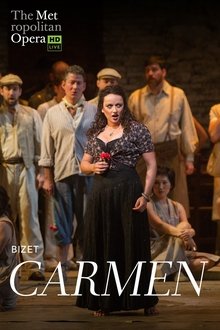
The Metropolitan Opera: Carmen (2019)
Mezzo-soprano Clémentine Margaine reprises her remarkable portrayal of opera’s ultimate seductress, a triumph in her 2017 debut performances, with impassioned tenors Yonghoon Lee and Roberto Alagna as her lover, Don José. Omer Meir Wellber and Louis Langrée share conducting duties for Sir Richard Eyre’s powerful production, a Met favorite since its 2009 premiere.
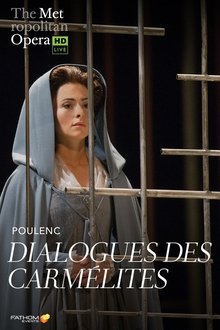
Poulenc: Dialogues des Carmélites (2019)
Yannick Nézet-Séguin leads the classic John Dexter production of Poulenc’s devastating story of faith and martyrdom. Mezzo-soprano Isabel Leonard sings the touching role of Blanche and soprano Karita Mattila, a legend in her own time, returns to the Met as the Prioress.
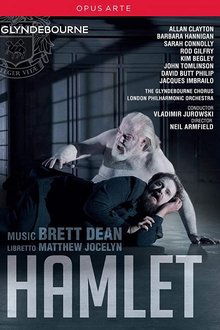
Glyndebourne: Hamlet (2018)
Brett Dean's multi-award-winning opera received its world premiere at Glyndebourne Festival 2017. The world premiere recording of Brett Deans new opera based on Shakespeares best-known tragedy: To be, or not to be. This is Hamlets dilemma, and the essence of Shakespeares most famous and arguably greatest work, given new life in operatic form in this original Glyndebourne commission. Thoughts of murder and revenge drive Hamlet when he learns that it was his uncle Claudius who killed his father, the King of Denmark, then seized his fathers crown and wife. But Hamlets vengeance vies with the question: is suicide a morally valid deed in an unbearably painful world?
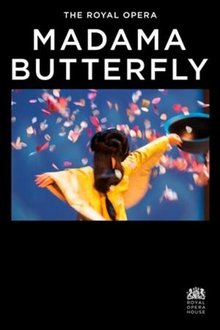
Royal Opera House 2023/24: Madama Butterfly (2024)
Cio-Cio-San, the young Japanese bride of American naval officer Lieutenant Pinkerton, finds her romantic idyll shattered when he deserts her shortly after their marriage. She lives in hope that one day he will return.
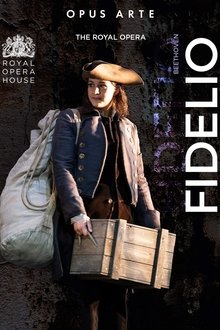
Beethoven: Fidelio (2020)
Beethoven’s only opera is a masterpiece, an uplifting story of risk and triumph. In this new production, conducted by Antonio Pappano, David Butt Philip plays the political prisoner Florestan, and Lise Davidsen his wife Leonore (disguised as ‘Fidelio’) who daringly sets out to rescue him. Set in strong counterpoint are the ingredients of domestic intrigue, determined love and the cruelty of an oppressive regime.
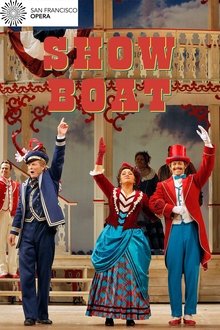
Show Boat (2015)
Hammerstein and Kern’s Show Boat is a true classic of American musical theater - a tale of life on the Mississippi from the 1880s to the 1920s is both a poignant love story and a powerful reminder of the bitter legacy of racism. The exuberant production from the San Francisco Opera features songbook classics such as “Ol’ Man River” and “Can’t Help Lovin’ Dat Man”.
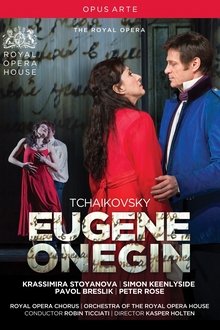
Eugene Onegin (2013)
Tchaikovsky's much-loved opera Eugene Onegin, a story of love, rejection and tragedy based on Pushkin's verse drama of the same name.
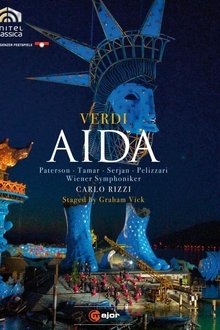
Verdi: Aida (Bregenz Festival) (2010)
A spectacular production of Aida filmed at Bregenz Festival's lakeside stage in 2009, with Carlo Rizzi conducting the Vienna Symphonic Orchestra and the Polish Radio Choir.
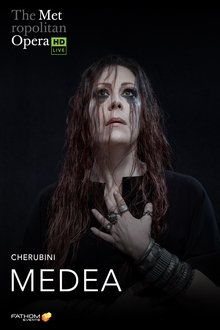
The Metropolitan Opera: Medea (2022)
Having triumphed at the Met in some of the repertory’s fiercest soprano roles, Sondra Radvanovsky stars as the mythic sorceress who will stop at nothing in her quest for vengeance. Joining Radvanovsky in the Met-premiere production of Cherubini’s rarely performed masterpiece is tenor Matthew Polenzani as Medea’s Argonaut husband, Giasone; soprano Janai Brugger as her rival for his love, Glauce; bass Michele Pertusi as Glauce’s father, Creonte, the King of Corinth; and mezzo-soprano Ekaterina Gubanova as Medea’s confidante, Neris. Carlo Rizzi conducts.
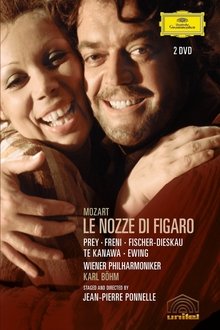
The Marriage of Figaro (1975)
Mozart's Marriage of Figaro is a comedy whose dark undertones explore the blurred boundaries between dying feudalism and emerging Enlightenment. Herman Prey's Figaro is admirably sung in a firm baritone and aptly characterized. So too, is his antagonist, Dietrich Fischer-Dieskau as the Count perpetually frustrated by the scheming wiles of Figaro and Susanna, here the perky Mirella Freni, who sings and acts like a dream. The Countess is creamy-voiced Kiri Te Kanawa, and the Cherubino, Maria Ewing, looks just like the horny, teenaged page she's supposed to be. The all-star leads are complemented by worthy supporting singers, the Vienna Philharmonic at the top of its form, and the experienced Mozartian, Karl Böhm conducting a stylishly fleet performance.
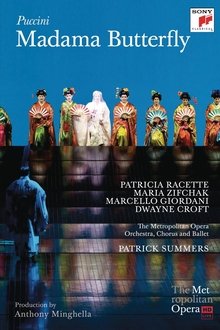
The Metropolitan Opera: Madama Butterfly (2009)
Anthony Minghella’s stunning production of Puccini’s opera opened the Met’s 2006–07 season and was seen by thousands of people around the world as part of the company’s Live in HD series. Patricia Racette is Cio-Cio-San, the trusting and innocent young geisha of the title, who disastrously falls in love with American Navy lieutenant B. F. Pinkerton (Marcello Giordani), only to be abandoned by him. Maria Zifchak is her loyal servant Suzuki and Dwayne Croft is Sharpless, the sympathetic American consul who does all he can but is unable to avert tragedy. Performance Date Mar 7, 2009
